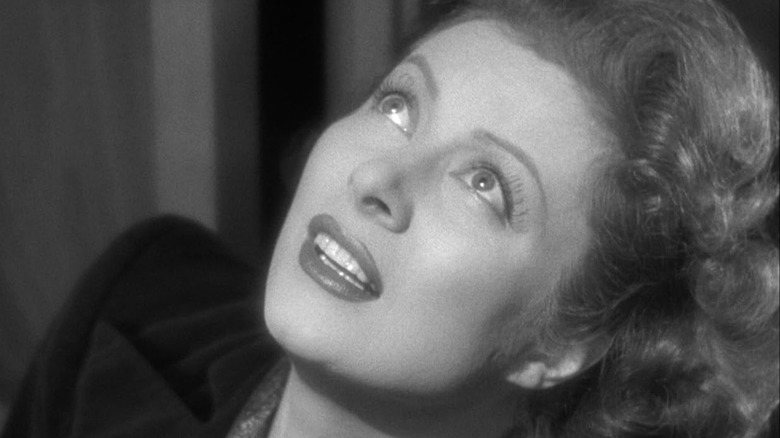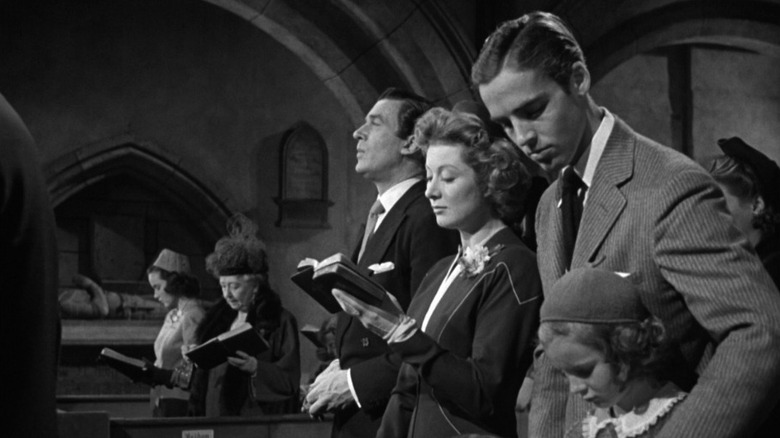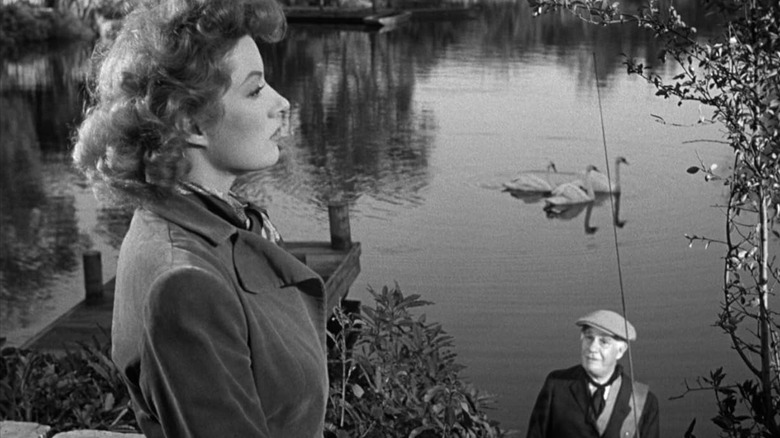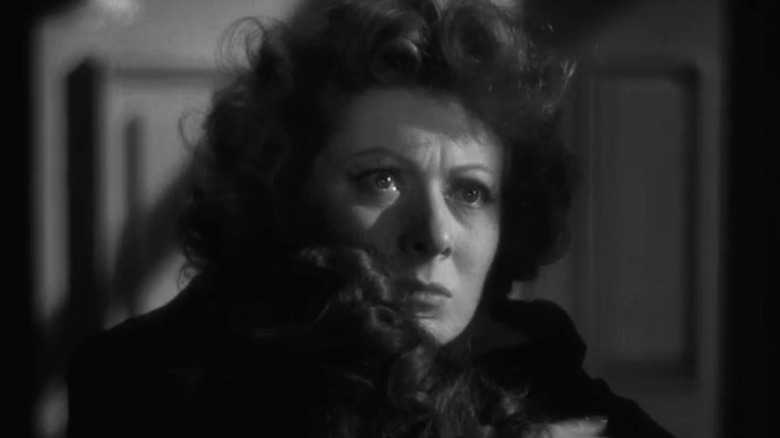The Longest Acceptance Speech In Oscars History Is Just As Powerful Today
If there is any guarantee about the Academy Awards, it's that the show will feature jokes about how long the ceremony itself is. Sometimes, those jests far outweigh the number of ceremonies that actually run long. Moreover, this is arguably just as true for other big awards shows, like the Golden Globes and the Emmys, but it often feels most specifically accurate about the Oscars.
The notion is simple enough: because the Oscars air on network TV, even with the reality that it's a live event at which any number of things could unexpectedly happen, the show has to end at some point — even if that means that certain awards get truncated or speeches get cut short. The latter is the most common thing; we've all seen an acceptance speech get cut off no matter what, and sometimes no matter who's on camera. Yes, for the last few big awards, like Best Actor or Best Actress, the people running the show tend to let the winners go a little long in their speeches (but only a little bit).
Of course, it's equally true that the Academy Awards have been handing out golden statuettes since before the advent of television. As the Academy rapidly approaches 100 years of awards ceremonies, they've only been airing on television since March 1953 (when the Best Oscar went to the eventual movie-turned TV series "The Greatest Show on Earth"). Perhaps that explains the fact that one time, an acceptance speech went long — like, six minutes long — and still manages to be among the most profound and touching awards monologues ever delivered. But while that may still be true, it's also potentially the reason why acceptance speeches today never reach such lengths.
Greer Garson's acceptance speech for Mrs. Miniver set an Oscar record
By the time she starred in the 1942 drama "Mrs. Miniver" from director William Wyler, Greer Garson had already been nominated twice for Best Actress at the Oscars. The film, in which she plays the titular character, would not only secure the actor her third overall nomination, but also mark the second of five straight nods Garson got in the category. As of this writing, her seven Best Actress nominations makes her fourth all time in the category.
"Mrs. Miniver" was a big hit at the Oscar ceremony that took place on March 4, 1943, where it additionally won Best Picture, Best Director, and Best Supporting Actress. It's also a notable piece of Oscars history because it's the first big-time Oscar winner to be focused specifically on World War II (as well as the first film to receive five separate acting nominations). So, in some ways, the fact that a) Garson won the Oscar and b) she got plenty of runway to go long in her acceptance speech should come as no surprise. The film's victories weren't unexpected either; it was a movie that virtually everyone predicted would steamroll over every other nominee in its categories, like when "Titanic" won 11 out of 14 Oscars in the late 1990s.
Garson took her shot when she won her only Oscar and went long with her speech
What's honestly pretty remarkable about Garson's acceptance speech is that the sections that have survived the decades via newsreel don't even make up the full speech, yet they still account for about four minutes' worth of what she said on stage. Anyone with a passing familiarity of awards speeches won't be too shocked at the general arc of what Garson had to say, from acknowledging how important and meaningful it is just to be nominated to praising the other major players on the film itself. It should also be noted that Garson came to the States in the late 1930s, making her a fairly recent immigrant at the time of winning the trophy. Considering the impact of World War II on Hollywood and the world at large, it's no shock that Garson acknowledged the grander moment, stating, "[P]raise from our government and our armed forces and from abroad [...] should make us determined to carry on."
Garson also spent a good deal of time acknowledging what it meant to be a recent transplant to the States, the kind of rousing sentiment that's all too prescient to hear in the year of our Lord 2025. On the other hand, we should note that Garson did tend to ramble more than a bit; that she was able to quote Lewis Carroll's "Alice in Wonderland" in the middle of her speech is both exemplary and a good sign that she wanted to milk her time on stage as much as humanly possible. Yes, it's applicable that the Dodo apparently said, "Everybody has won and everybody shall have a prize" in relation to Oscar nominees being winners in their own right for getting the nod, but at the same time, that's the kind of thing that's guaranteed to get you played-off by the orchestra these days.
Garson's lengthy speech had an impact that's still felt at awards shows today
As of 2010, the timing is pretty simple: Oscar winners get 45 seconds for their acceptance speeches. Again, that's not always true, as recent winners like Cillian Murphy and Christopher Nolan for "Oppenheimer" may've gotten a bit of leeway, considering the awards they're accepting as well as the film itself. But the general rule is that, with few exceptions, you've got less than a minute. We can't know for sure if Garson's acceptance speech was the straw that broke the camel's back. (Although there was newsreel footage of the event, regular annual TV productions of the ceremony wouldn't occur for another decade.) But many feel that her lengthy monologue, as much about the power of being welcomed into the American film industry as a polite commentary on the power of being nominated by your peers, was what pushed the Oscars to firmly encourage its winners to keep things tight.
The idea of a long acceptance speech at the Oscars may seen anathema to the industry, if not just the network airing the ceremony. But even though Garson could've probably kept things a little briefer, the fact that she went up on stage and extemporaneously spoke for so long, managing to do it all without having written anything down in advance (the YouTube link above may only show a brief chunk of her speech, but she's not reading off of any index cards or the like), is kind of amazing. Today's set of winners, even among the big acting categories, rarely capture audience attention the same way, and when they do, it's usually because they go big in the way they accept, not by monologuing. (Think of something like Cuba Gooding, Jr.'s rousing yet not heavily rehearsed acceptance for "Jerry Maguire.") Garson had her big shot when she won her sole Oscar for "Mrs. Miniver" and managed to deliver an unforgettable and impactful acceptance speech that inadvertently set the tone for decades to come, even if today's winners may not realize it.



